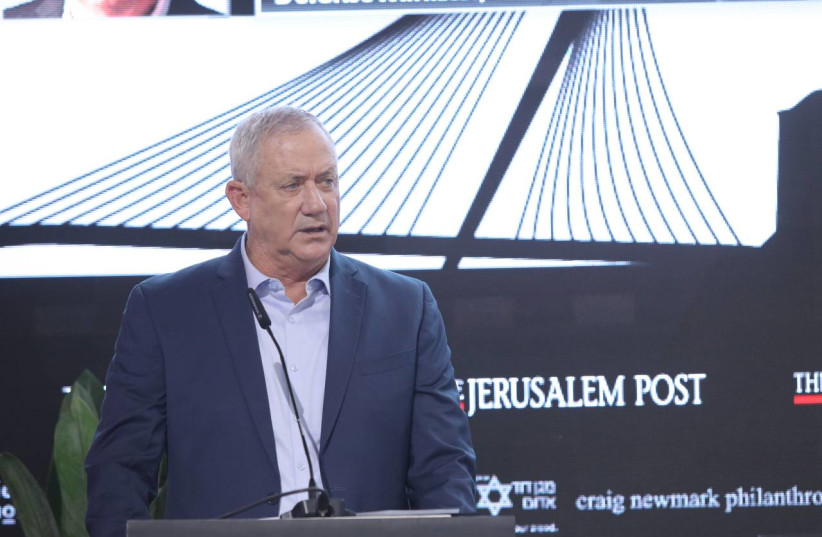Universal military, national and civilian service will be reevaluated for reform by a new inter-ministerial team led by the Prime Minister's Office and the Defense Ministry, Prime Minister Naftali Bennett and Defense Minister Gantz announced on Wednesday.
The team is expected to explore the issue of low Israel Defense Forces enlistment with proposals for alternative service frameworks through civil and national avenues that take into account the draft hesitancy and the needs and concerns of the Haredi and Arab sectors.
The inter-ministerial committee will "evaluate service arrangements in the IDF and national and civilian service, and formulate a new, broad and updated service plan that coordinates security and socio-economic needs in Israel, including its various population groups, and which reflects a broad national consensus," according to the announcement.
It will be chaired by Cabinet Secretary Shalom Shlomo and chief of the Defense Minister's staff, Ma'ayan Yisraeli. There will be members and representatives from the IDF, National Service authority, and Justice, Finance, Economy and Industry, Social Equality and Defense ministries.
At an October 19 Knesset, Foreign Affairs and Defense Committee meeting, Gantz said that he would present the MKs with reform plans to remedy the problem of low draft rates.

Gantz has proposed other plans in the past to expand enlistment in the Haredi and Arab sectors to meet the challenge of low enlistment to the IDF's legitimacy as a people's army. It is not yet known if the new team will use any of Gantz's previous proposals as the basis for their evaluations.
“Army service is harmed; Israeli society is torn apart,” Gantz said on January 27 at a Kirya press conference for a previous universal draft bill proposal. “We must be united in our service…Israeli society is changing its face, the IDF has turned from the people’s army to half the people’s army. Combat warriors become freierim [suckers].”
Gantz's January proposal included a new directorate in the Defense Ministry to oversee a new drafting mechanism for conscripts to choose a military or civil service.
In 2018, the Pnima organization, of which Gantz was a member, proposed a plan with three tracks for mandatory service: IDF, internal security and emergency services; welfare; and education.
The cabinet approved the proposal to form the new inter-ministerial evaluation team on August 22, as part of the proposal by Bennett, Gantz and Finance Minister Avigdor Liberman to lower the age of exemption of young haredi men to 21 for the next two years. There will then be a staggered raising of the exemption age back up to 23 over a few years.

"For decades, the State of Israel has consistently chosen to cut off its nose to spite its face, i.e. out of anger over ultra-orthodox who do not serve [in the IDF], they were also compelled not to join the labor market until they were older," Bennett said at the time. "Today, we are putting a stop to this and opening the labor and employment markets to ultra-orthodox young men."
In addition to the age exemption changes, the August plan also proposed that released haredi veterans "join the labor market by undergoing professional training or training for security, emergency or rescue activity," said the August PMO press release.
"We are removing the impediments and allowing freedom of choice for many thousands of ultra-orthodox young men, without coercion and without tanks in Bnei Brak," Bennett said in August. "This is the long and correct road on behalf of the national interest. Integrating the ultra-orthodox sector into the employment market is a goal of the highest order, for all of us. I am personally moved; this is a historic move for the future of Israel."
The haredi enlistment bill has yet to have been passed, delayed pending the whipping of a majority of votes by Gantz -- though The Jerusalem Post confirmed on Tuesday that Gantz received a commitment from Ra’am (United Arab List) leader Mansour Abbas to support the bill.
The team was initially expected to present its conclusions on November 22, but since the formation of the team past that date, no new due date has been set.
The Prime Ministers Office and Defense Ministry did not immediately respond to inquires about the committee's approach to the evaluation.
Gil Hoffman, Jeremy Sharon, and Udi Shaham contributed to this report.
